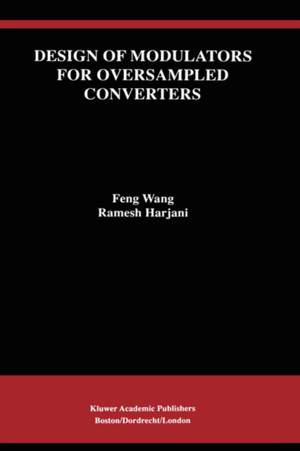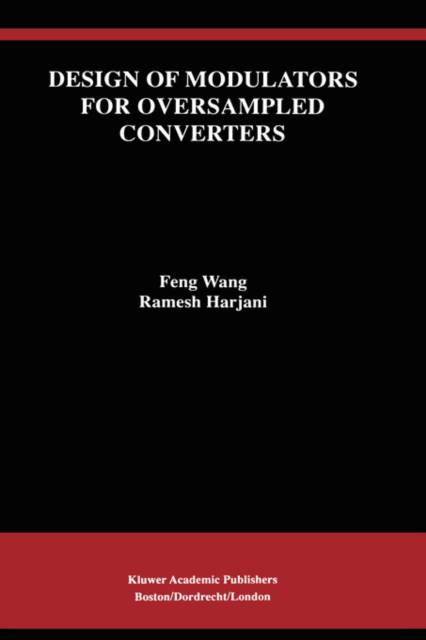
- Afhalen na 1 uur in een winkel met voorraad
- Gratis thuislevering in België vanaf € 30
- Ruim aanbod met 7 miljoen producten
- Afhalen na 1 uur in een winkel met voorraad
- Gratis thuislevering in België vanaf € 30
- Ruim aanbod met 7 miljoen producten
Zoeken
€ 139,95
+ 279 punten
Uitvoering
Omschrijving
Oversampled A/D converters have become very popular in recent years. Some of their advantages include relaxed requirements for anti-alias filters, relaxed requirements for component matching, high resolution and compatibility with digital VLSI technology. There is a significant amount of literature discussing the principle, theory and implementation of various oversampled converters. Such converters are likely to continue to proliferate in the foreseeable future. Additionally, more recently there has been great interest in low voltage and low power circuit design. New design techniques have been proposed for both the digital domain and the analog domain. Both trends point to the importance of the low-power design of oversampled A/D converters.
Unfortunately, there has been no systematic study of the optimal design of modulators for oversampled converters. Design has generally focused on new architectures with little attention being paid to optimization.
The goal of Design of Modulators for Oversampled Converters is to develop a methodology for the optimal design of modulators in oversampled converters. The primary focus of the presentation is on minimizing power consumption and understanding and limiting the nonlinearities that result in such converters.
Design of Modulators for Oversampled Converters offers a quantitative justification for the various design tradeoffs and serves as a guide for designing low-power highly linear oversampled converters. Design of Modulators for Oversampled Converters will serve as a valuable guide for circuit design practitioners, university researchers and graduate students who are interested in this fast-moving area.
Unfortunately, there has been no systematic study of the optimal design of modulators for oversampled converters. Design has generally focused on new architectures with little attention being paid to optimization.
The goal of Design of Modulators for Oversampled Converters is to develop a methodology for the optimal design of modulators in oversampled converters. The primary focus of the presentation is on minimizing power consumption and understanding and limiting the nonlinearities that result in such converters.
Design of Modulators for Oversampled Converters offers a quantitative justification for the various design tradeoffs and serves as a guide for designing low-power highly linear oversampled converters. Design of Modulators for Oversampled Converters will serve as a valuable guide for circuit design practitioners, university researchers and graduate students who are interested in this fast-moving area.
Specificaties
Betrokkenen
- Auteur(s):
- Uitgeverij:
Inhoud
- Aantal bladzijden:
- 148
- Taal:
- Engels
- Reeks:
- Reeksnummer:
- nr. 430
Eigenschappen
- Productcode (EAN):
- 9780792380634
- Verschijningsdatum:
- 30/11/1997
- Uitvoering:
- Hardcover
- Formaat:
- Genaaid
- Afmetingen:
- 156 mm x 234 mm
- Gewicht:
- 417 g

Alleen bij Standaard Boekhandel
+ 279 punten op je klantenkaart van Standaard Boekhandel
Beoordelingen
We publiceren alleen reviews die voldoen aan de voorwaarden voor reviews. Bekijk onze voorwaarden voor reviews.











